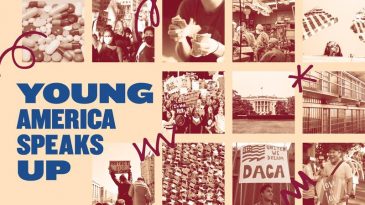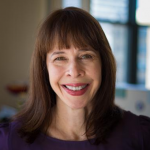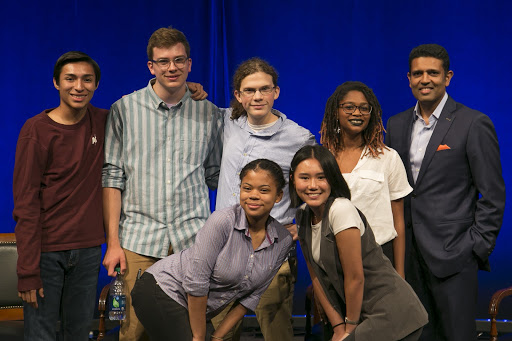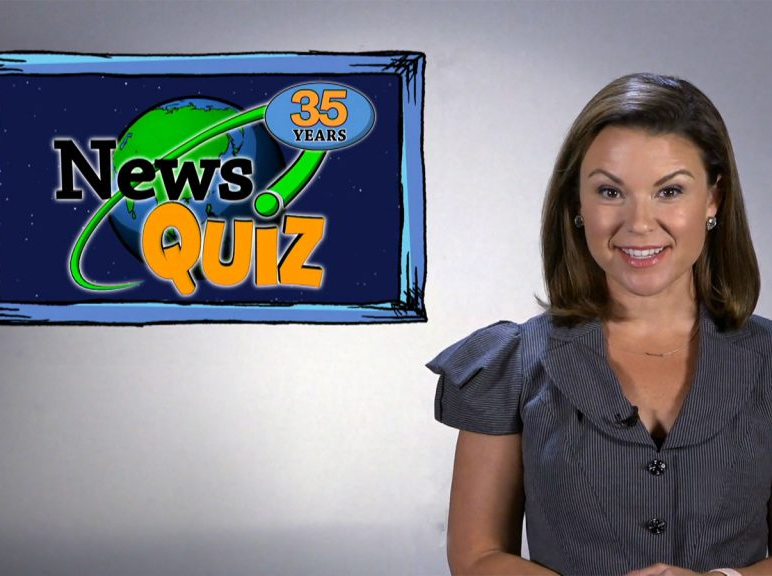The following post is part of a series springing from the Cooney Center’s joint initiative with the Corporation for Public Broadcasting, By/With/For Youth: Inspiring Next Gen Public Media Audiences. This is a project aimed at exploring the role of public media in the lives of young people by taking stock of the current landscape and imagining a future that public media can build alongside teens and tweens. With that in mind, we are inviting public media practitioners who are already experimenting and exploring with young audiences to reflect on their experiences and share their perspectives. We hope these posts will spark conversation, provide direction and resources, and raise up examples of the innovative work that public media stations across the country are creating to engage the next generation.
I started 2020 with a plan. Didn’t we all? For the first time in more than 20 years the youth media program I run, WNYC’s Radio Rookies, would turn its attention away from New York City and out into the country. We planned to help young people document what was at stake for them in the 2020 election, running their stories on NPR and locally on WNYC Radio. We partnered with YR Media in California and recruited a group of 13 correspondents from nine states who were all going to fly to New York City in the middle of March for an intensive reporting and media training. We planned to go bowling with them in Times Square. Remember bowling?

When everything shut down, we continued to work with our group in the 18-to-29 Now project. But as New York became the epicenter of a global pandemic, I felt like Radio Rookies had to help young people describe and document their experiences. I kept picturing NYC’s more than a million public school kids at home, unmoored by the loss of school and community connection, and I wanted to hear their voices, especially when the world outside felt so quiet. One of the strengths of working in audio is the ability to send out relatively inexpensive equipment that is simple to train teenagers on. Filming can often make subjects feel self-conscious, while audio is a less intrusive medium that lends itself well to the first-person documentary. We were uniquely positioned to help document the experiences of young people in New York.
So I reached out to Global Kids, a youth development group in New York, to see if they wanted to partner with us and to help connect us with teenagers who might want to create audio documentaries about what was happening around them. We held an open house on Zoom for students from William Cullen Bryant High School in Astoria, Queens. Within weeks we had shipped equipment out to a group of students and were working with them to identify what they would report on. At Radio Rookies, we don’t assign stories. Instead, we take the time to get to know students and then guide them through a process of selecting a story topic that they’re genuinely interested in— something they have unique access and insight into. Together we zeroed in on areas where the virus has deeply affected young people: education, health, mental health, and economics.
For example, I began working with Daniel, a senior in high school, who had a job at 7-Eleven before the pandemic shut everything down. Daniel likes math, wakes up at 4:00 AM, and loves a good inspirational quote—he’s a quirky and hilarious teenager. When he was employed, he usually gave his mom about $50 a week, and now she was struggling to keep up with groceries and the bills without that extra cash. COVID-19 had changed his family’s circumstances, but what was the story he was reporting? Through a series of production meetings, it became clear that Daniel and his mom argued about money, and that he felt torn between incredible pressure to help support his family and his desire to focus on his education and future. Meanwhile, his mother worried about providing. Being poor was difficult enough, but the pandemic made a tough situation even worse, exacerbating tensions that existed before the virus.
Over the next few months, Daniel recorded interviews with his mom and his grandparents, he recorded himself delivering food, he made audio diaries about trying to organize his time and heading out to look for deals on toiletries. He would upload his audio and we’d listen together, teasing out his and his mom’s perspectives. Then we wrote and talked and wrote some more. Daniel’s story will air locally this month on WNYC Radio during Morning Edition and All Things Considered. The story is a detailed, first-person account of job loss (New York City’s unemployment rate climbed to over 20% in June and July) and food insecurity (the number of food-insecure households in New York City has nearly doubled to 2 million, due to COVID) while graduating high school and starting college in the midst of a pandemic.
Conversations about how to best educate kids during a pandemic or how to help prevent evictions during the related economic crisis understandably focus on the health, science, and politics that drive decision-making. In that, we often lose out on hearing the smallest and most vulnerable voices, those of kids. I’ve never felt more strongly the importance of the mission of Radio Rookies and youth media more broadly. I hope that as the months grind on, we continue to listen to what young people tell us about their hopes and fears during this unprecedented time.
 Kaari Pitkin is the Executive Producer of Radio Rookies, WNYC’s Peabody award-winning youth journalism program that teaches people to report and produce radio documentaries rooted in their own experiences. Radio Rookies is known for its highly produced and sound-rich portraits of life for teenagers in NYC today, producing stories about everything from gentrification to school segregation to gaming culture, all using first-person journalism. Under Kaari’s leadership, Rookies has been recognized by the Robert F. Kennedy Award for Journalism, the National Edward R. Murrow Awards, the Society for Professional Journalists, and the Third Coast Festival Awards.
Kaari Pitkin is the Executive Producer of Radio Rookies, WNYC’s Peabody award-winning youth journalism program that teaches people to report and produce radio documentaries rooted in their own experiences. Radio Rookies is known for its highly produced and sound-rich portraits of life for teenagers in NYC today, producing stories about everything from gentrification to school segregation to gaming culture, all using first-person journalism. Under Kaari’s leadership, Rookies has been recognized by the Robert F. Kennedy Award for Journalism, the National Edward R. Murrow Awards, the Society for Professional Journalists, and the Third Coast Festival Awards. 


